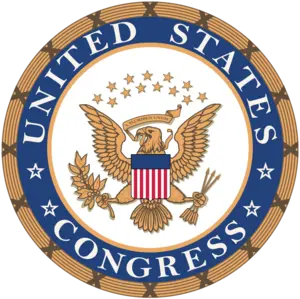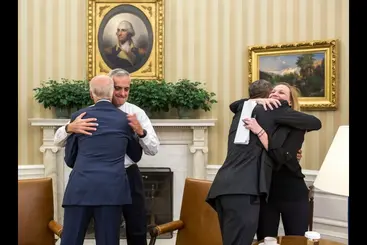RAPID CITY, S.D. — Brian Bengs, an Independent Senate Candidate and former Air Force Lieutenant Colonel, has brought attention to a pressing issue affecting both South Dakotans and the broader United States. With the ongoing government shutdown reaching its 29th day, Bengs sat down for an in-depth discussion with KOTA Territory News. The crux of this shutdown, according to Bengs, is a dangerous game of political chicken that puts over a million federal workers, many of whom reside in South Dakota, in a precarious situation.
The shutdown’s deadlock stems from the impending expiration of the Affordable Care Act subsidies, which critically affect the healthcare landscape. These subsidies, crucial to many South Dakotans who depend on affordable healthcare, are set to expire at the end of the year. The lapse represents one of the many issues South Dakota faces due to partisan politics in Congress.

Congress
Bengs did not mince words, describing the political standoff as a matter of who cares less about the average citizen. “This is not what the government should be doing; this is the product of partisanship; it’s a party game, who’s going to win,” he stated. “This whole process is stupid as I said.” This sentiment resonates with South Dakotans, whose sturdy independence and practicality make them keenly aware of the consequences of such political gamesmanship.
In South Dakota, where farming and small businesses form the economic backbone, the disruption of federal services has a profound ripple effect across communities. The state relies heavily on federal assistance and programs that support its agricultural and economic infrastructure. As Bengs points out, the effect on federal employees trickles down to impact local economies, causing strain that reaches beyond just those directly engaged in federal work.

Affordable Care Act subsidies
The impasse over the healthcare subsidies, last renewed in 2022, highlights Congress’s fleeting emphasis on long-term solutions. Bengs criticizes their inability to proactively address the expiration of these subsidies, a critical component of not only the national healthcare system but also the financial well-being of many South Dakotans.
Bengs passionately advocates for the extension of these subsidies. Still, he sees this as merely a temporary measure, pushing instead for broader healthcare reform through the introduction of a public option. “27 percent of the federal budget is spent on healthcare costs, and that’s not sustainable,” Bengs remarked. “Our system is broken; everybody knows it, I know it, we just need to fix it.”
A public option, Bengs believes, could relieve pressure on families and the state’s healthcare systems alike, allowing South Dakotans to receive high-quality care without the looming fear of insurmountable costs. He suggests the establishment of a commission akin to a public utilities commission to set reasonable profits for healthcare companies, ensuring fair pricing and transparent business practices.
The current shutdown underscores the importance of pragmatic leadership that resonates with the values and needs of South Dakotans. Bengs’s perspectives offer a refreshing departure from the gridlock that characterizes the federal approach to policy-making.
While South Dakota’s citizens are known for their resilience and resourcefulness, they are also keen advocates for effective governance that aligns with their priorities. The current shutdown, driven by the expiration of vital healthcare subsidies, has only deepened the call for leaders like Bengs, who advocate for solutions that stress long-term stability and fiscal responsibility.
As the political saga unfolds, South Dakotans remain hopeful that their elected officials can transcend the fray of national partisanship, focusing instead on bipartisan solutions that will benefit the state and the nation. The current impasse, Bengs argued, stands as a poignant reminder of what happens when political games overshadow genuine public service. “It’s a matter of priorities,” he said, capturing the sentiment of a state longing for meaningful action over rhetoric.
For all South Dakotans impacted by the shutdown or concerned about healthcare reform, the hope lies in continued advocacy and engagement with leaders who listen and act. The ongoing developments in Washington are sure to impact South Dakota, a state deeply rooted in community and the belief in opportunities for all.
In the end, the story of this shutdown is a chapter in the larger narrative of South Dakota’s role in national affairs, underlining the essential nature of leadership that not only listens but acts on the needs of its people.
